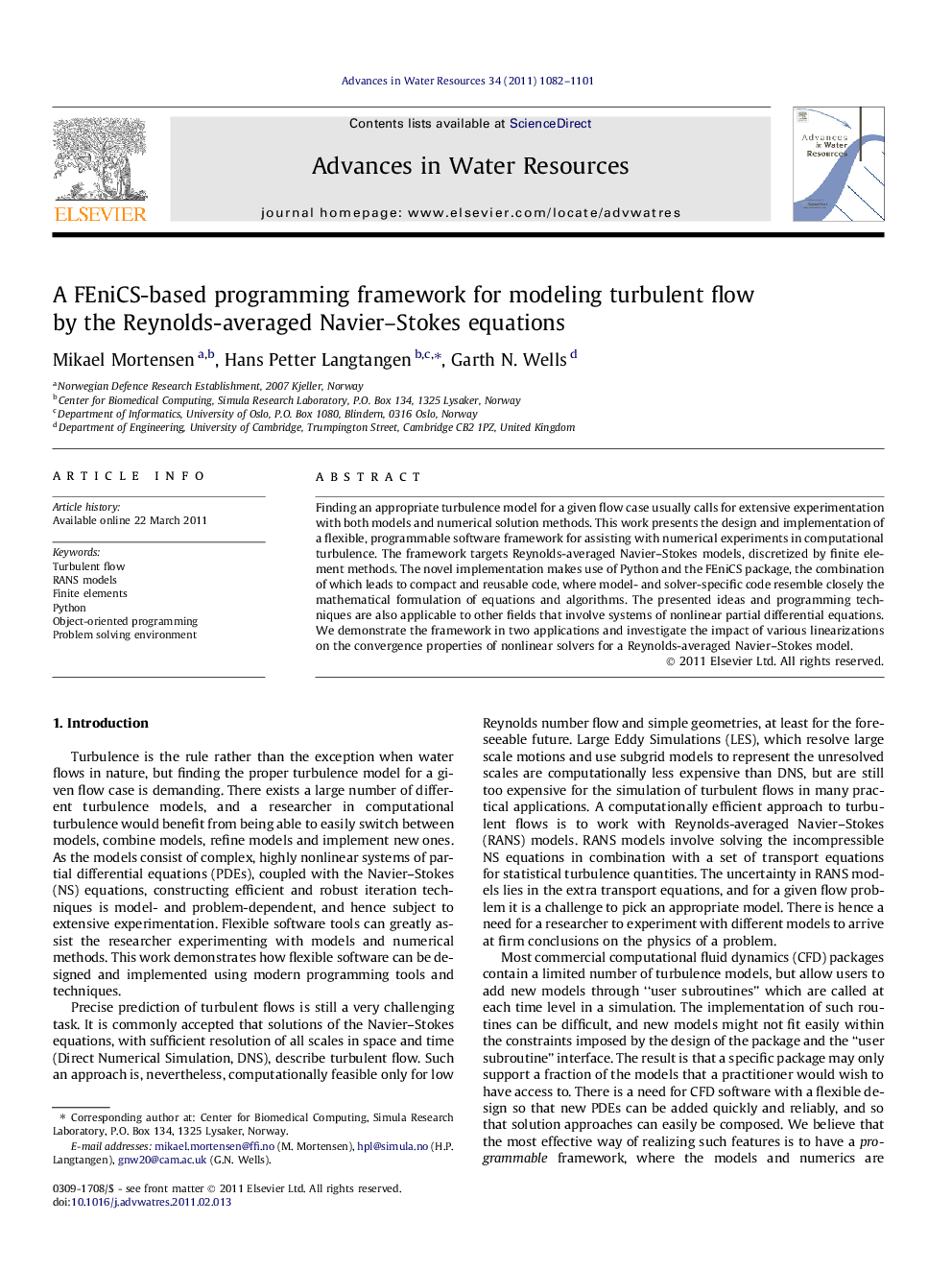| کد مقاله | کد نشریه | سال انتشار | مقاله انگلیسی | نسخه تمام متن |
|---|---|---|---|---|
| 4526007 | 1323808 | 2011 | 20 صفحه PDF | دانلود رایگان |

Finding an appropriate turbulence model for a given flow case usually calls for extensive experimentation with both models and numerical solution methods. This work presents the design and implementation of a flexible, programmable software framework for assisting with numerical experiments in computational turbulence. The framework targets Reynolds-averaged Navier–Stokes models, discretized by finite element methods. The novel implementation makes use of Python and the FEniCS package, the combination of which leads to compact and reusable code, where model- and solver-specific code resemble closely the mathematical formulation of equations and algorithms. The presented ideas and programming techniques are also applicable to other fields that involve systems of nonlinear partial differential equations. We demonstrate the framework in two applications and investigate the impact of various linearizations on the convergence properties of nonlinear solvers for a Reynolds-averaged Navier–Stokes model.
► We describe a flexible environment for efficiently writing PDE solvers.
► We show how Navier–Stokes solvers can be implemented.
► Complicated turbulence models can be implemented with few lines of code.
► There is great flexibility in how PDEs can be coupled and linearized.
Journal: Advances in Water Resources - Volume 34, Issue 9, September 2011, Pages 1082–1101